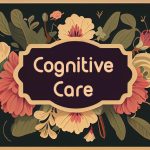Person-Centered Care vs Person-Led Care
In dementia care, person-centered care is the internationally recognized best practice. It means seeing each individual beyond their diagnosis, valuing their history and preferences, and shaping care around their identity and abilities.- Some propose calling it “person-led care.” While this sounds progressive, it risks confusion: many people with dementia — especially in moderate and later stages — cannot reliably “lead” their own…














